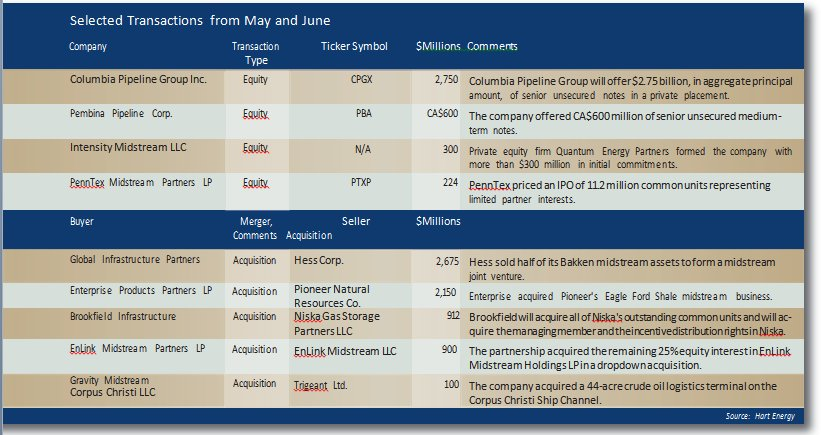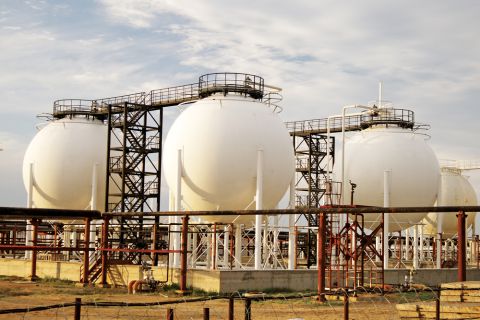The Williams Tower in Houston, planted in a residential area miles from the city’s gleaming downtown skyline, serves as a beacon to residents of the oil and gas capital. In essence, it says: Come here to shop.
That’s because the 64-story building is across the street from The Galleria, a palatial 2.4 million-square-foot retail experience equipped with a Neiman Marcus, Nordstrom, Gucci and ice rink. Perhaps Energy Transfer Equity LP picked up on that conspicuous consumption vibe when it made its $53.1 billion offer for Tulsa, Okla.-based The Williams Cos. Inc.
And like so many shoppers at The Galleria, it discovered that the price was higher than expected.
Dallas-based Energy Transfer Equity’s unsolicited bid of $64 per share translated to a 32% premium over Williams’ closing price of the previous session. Yet in a released statement, Williams insisted that the offer was significantly less than the true value of the company.
That could be problematic. As Mark Reichman, analyst with Simmons & Co. International, told clients in a research note, Williams’ management now has to back up that stand by delivering equal or higher value to unit holders. Reichman questioned whether that could happen, expecting increased pressure on the company’s stock price following an initial bump in the wake of the offer.
In contrast, Robert W. Baird & Co. analysts could envision the deal reaching completion. In its MLP sector update, Baird said it expected bidding wars to emerge, led by Energy Transfer and Kinder Morgan Inc. Its analysts advise investors and management to target upstream and midstream companies engaged in the highest returning basins and “structurally shift exposure downstream to meet the consumer and the export market at the expense of the producer.
Tudor, Pickering, Holt & Co. noted the value of expansion opportunities for Energy Transfer with the combination of its interstate pipeline system and Williams’ Transco system. Energy Transfer has interests in the Marcellus and Utica shales and Transco is a 10,200-mile interstate transmission system from South Texas to New York City.
How much is that worth? Baird believes that Energy Transfer could boost its bid to $74 per share to get what it wants.
Recommended Reading
US Raises Crude Production Growth Forecast for 2024
2024-03-12 - U.S. crude oil production will rise by 260,000 bbl/d to 13.19 MMbbl/d this year, the EIA said in its Short-Term Energy Outlook.
Iraq to Seek Bids for Oil, Gas Contracts April 27
2024-04-18 - Iraq will auction 30 new oil and gas projects in two licensing rounds distributed across the country.
For Sale, Again: Oily Northern Midland’s HighPeak Energy
2024-03-08 - The E&P is looking to hitch a ride on heated, renewed Permian Basin M&A.
E&P Highlights: Feb. 26, 2024
2024-02-26 - Here’s a roundup of the latest E&P headlines, including interest in some projects changing hands and new contract awards.
Gibson, SOGDC to Develop Oil, Gas Facilities at Industrial Park in Malaysia
2024-02-14 - Sabah Oil & Gas Development Corp. says its collaboration with Gibson Shipbrokers will unlock energy availability for domestic and international markets.



